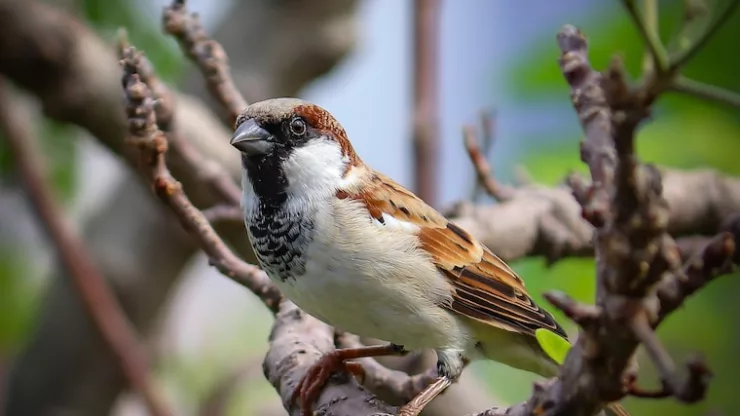Urban swallows are a fascinating species of birds that have adapted to living in densely populated cities.
These birds have a unique diet that allows them to survive and thrive in urban environments.
In this article, we will explore the secret to urban swallows’ high-flying diet and how feeding the flock can support their health and survival.
Jump to Section
The Secret to Urban Swallows’ High-Flying Diet: Feeding the Flock!
Introduction: Understanding the Diet of Urban Swallows
Urban swallows primarily feed on insects and other small prey. They are expert aerial hunters, using their acrobatic flying skills to catch insects on the wing.
Swallows are also known to eat small fruits and berries, and they have adapted to take advantage of the abundance of artificial food sources in urban environments.
The Benefits of Urban Living for Swallows
Urban environments offer several benefits for swallows that are not available in rural areas. These benefits include:
Abundance of Food Sources
Urban areas often have a higher concentration of insects, which provides a plentiful supply of food for swallows.
Additionally, artificial lighting in cities attracts insects at night, providing a reliable food source for swallows after sunset.
Protection from Predators
Urban environments offer protection from many natural predators that swallows would encounter in rural areas.
For example, urban buildings provide nesting sites that are inaccessible to predators such as snakes and raccoons.
The Diet of Urban Swallows
Swallows have a varied diet that consists of both natural and artificial food sources.
Insects and Other Small Prey
Swallows primarily feed on insects such as flies, mosquitoes, and moths. They catch these insects on the wing using their sharp eyesight and agile flying skills.
Swallows are also known to eat other small prey such as spiders and small fish.
Artificial Food Sources
Urban swallows have adapted to take advantage of the abundance of artificial food sources in urban environments.
They will eat scraps of food left behind by humans, such as bread crumbs and fast food scraps.
They also consume insects attracted to artificial lighting at night.
The Importance of Feeding the Flock
Feeding urban swallows can have several benefits for the birds, including:
Increased Reproductive Success
Providing a reliable source of food for swallows can increase their reproductive success.
Swallows that are well-fed are more likely to produce healthy offspring and successfully raise their brood.
Improved Health and Survival
Feeding urban swallows can also improve their overall health and survival.
Swallows that have access to a varied and nutritious diet are less vulnerable to disease and other health problems.
Best Practices for Feeding Urban Swallows
If you are interested in feeding urban swallows, there are several best practices to follow:
Choosing the Right Foods
Swallows require a varied and nutritious diet to stay healthy. Good foods to offer include mealworms, crickets, and fruit flies.
Avoid offering processed foods or items that are high in salt or sugar.
Providing Safe Feeding Stations
Make sure that your feeding station is safe for swallows.
Keep it clean and free of debris, and make sure that it is in a location that is not exposed to predators.
Avoiding Overfeeding and Dependency
Feeding swallows should be done in moderation. Overfeeding can lead to health problems and dependency on human-provided food.
Supporting Urban Swallows Through Feeding the Flock
Feeding urban swallows can be a fun and rewarding way to support these fascinating birds.
By providing a reliable source of food, you can help swallows thrive in urban environments and contribute to their overall health and survival.
Frequently Asked Questions
What is the best food to feed urban swallows?
Swallows require a varied and nutritious diet to stay healthy. Good foods to offer include mealworms, crickets, and fruit flies.
Avoid offering processed foods or items that are high in salt or sugar.
Is it safe to feed urban swallows?
Feeding urban swallows can be done safely as long as you follow best practices.
Make sure that your feeding station is clean and free of debris, and choose foods that are healthy for swallows.
Can feeding urban swallows cause dependency?
Feeding swallows should be done in moderation to avoid dependency on human-provided food.
Offering a variety of foods and allowing swallows to forage for natural food sources can help prevent dependency.
I’m a nature enthusiast and creator of Metro Wilds and have spent years exploring the great outdoors.
With a passion for environmental conservation and sustainability, I have dedicated my career to writing about the beauty and wonders of nature, as well as the threats facing our planet.
Contact me at [email protected] for assistance.





